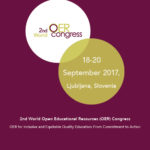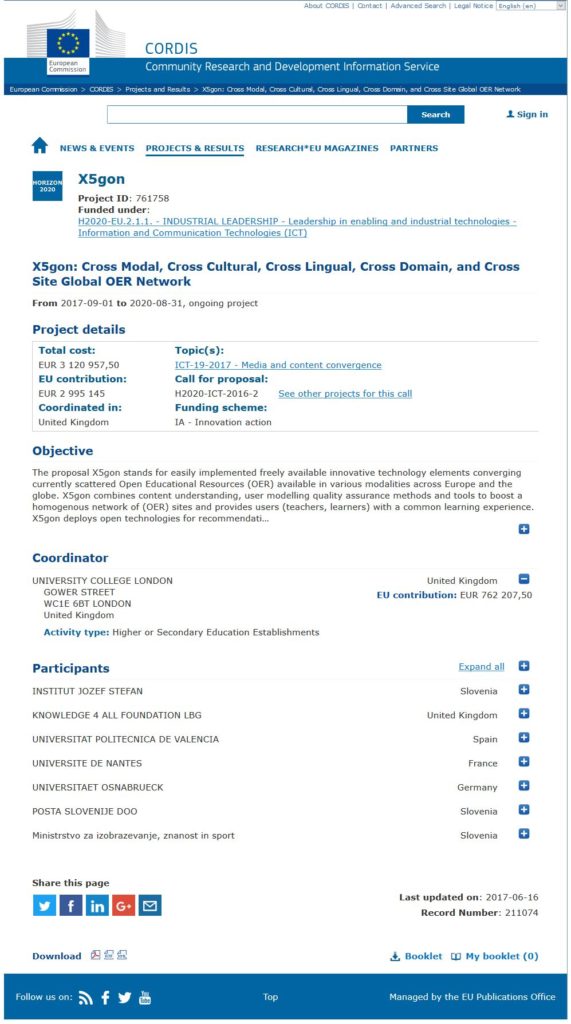Job Description: University of Nantes wishes to recruit an engineer for project X5-GON. The goal is to specify, develop and deploy a recommender system solution. The candidate will be invested in technical tasks as well as participate to meetings with the other teams of the consortium. Technical decisions will be taken collectively: strong technical skills are therefore required.
Within the context of the project, the candidate will be part of a team working on this or similar projects. He will benefit from experienced supervision, making this position of interest to candidates with 0 to 5 years experience.
Profile of the candidate: The candidate should hold a Master’s degree or an Engineer title in one of the following research areas: computer science, data science. A good level of expression in English (both written and spoken) is required.
Technical qualities:
- Python and C++ programming
- Software engineering
- Data science techniques, including Machine Learning
Soft skills:
- Motivation, autonomy and teamwork
- Capacity to adapt to the constraints of collaborative European projects
Duration: 36 months, beginning fall 2017.
University of Nantes also has a UNESCO Chair in technologies for the training of teachers by OER whose goal is to support and extend a running French project whose goal is to train hundreds of thousands of teachers and education professionals to code and computational thinking called Class’Code http://classcode.fr.
Full application and more details here.
 This is the result of K4A role in creating machine learning technologies for open education. The satellite we are running is Artificial Intelligence: Research, Technology and Business in OER where we will present the latest activities in a series of efforts to showcase the potential of products for Open Educational Resources (OER). With this conference K4A is showing its commitment in taking actions to push forward the global agenda on OER.
This is the result of K4A role in creating machine learning technologies for open education. The satellite we are running is Artificial Intelligence: Research, Technology and Business in OER where we will present the latest activities in a series of efforts to showcase the potential of products for Open Educational Resources (OER). With this conference K4A is showing its commitment in taking actions to push forward the global agenda on OER.

















